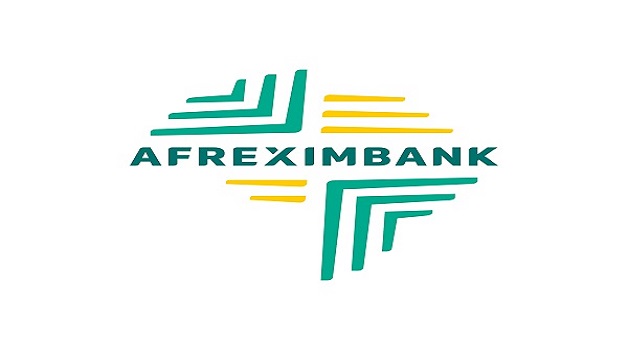E-Financial
Afreximbank Mulls Currency Trading Platform to Bridge $50bn Intra-Africa Trade Gap

The African Export-Import Bank (Afreximbank) has announced plans to launch its currency trading platform in a bid to bridge the Intra-African trade financing gap estimated at over $50 billion annually.

The President and Chairman of Board of Directors, Afreximbank, Prof. Benedict Oramah disclosed this at the 8th Goddy Jidenma Foundation (GJF) biennial public lecture tagged, “The trade route to poverty reduction in Africa in a de-globalising world.”
He said plans are ongoing to launch the platform in May, 2024, stating the urgent need to aggressively fill the intra-African trade gap.
Afreximbank, he said, operates an intra-African Trade Division that has disbursed over $40 billion since 2016, with an amount of about $11 billion outstanding, equivalent to about 28 per cent of Afreximbank’s loan portfolio.
According to him, “The Currency Trading Platform will also be launched under the auspices of Pan-African payment and settlement system (PAPSS).
“It is now becoming possible for a small farmer in Malawi to use his cell phone to purchase a Nollywood streaming movie and pay in the Malawian Kwacha while the seller in Nigeria receives Naira. We are nearing the stage when an Egyptian can buy shares on the Nigerian Stock Exchange paying in Egyptian Pounds.”
The Afreximbank boss said access to trade and investment information is key, “as lack of access is perhaps the greatest impediment to intra-regional trade.”
To address this challenge, He said Afreximbank offers an Artificial Intelligence-enabled Trade Information Platform under the brand name Tradar Intelligence.
“It is for the same reason that Afreximbank collaborates with the African Union Commission (AUC), the AfCFTA Secretariat, and others to host a biennial intra-African trade Fair. The three editions so far held since 2018 attracted an aggregate of over 70,000 visitors, 4,000 exhibitors and about 120 billion US dollars in deals,” he said.
On the status of implementation, he said the African Continental Free Trade Agreement (AfCFTA) Secretariat is operational in Accra, Ghana where 54 countries have signed the Agreement, and 47 have ratified it.
“While much progress has been made, a lot is still required to ensure that trading under the Agreement is boosted. For example, to avoid its falling victim to the discontent that negatively impacted globalisation, the AfCFTA must be complimented by the Free movement of Africans across the continent, with the right to work.
Although 32 countries have signed the Treaty, only four countries ratified it, falling short of the required 15 ratifications for the Free Movement Protocol to enter into force. We must continue to make aggressive push for countries to ratify the Treaty so as to get the requisite ratifications for it to come into force,” he urged.
Also speaking, the Founder and Executive Secretary, GJF, Dr. Ije Jidenma, said there is a perfect congruence between Prof. Oramah’s Pan African vision and the GJF quest to be part of the national think tank and solution to the nation’s developmental challenges.
“Even though the developmental turf is tough, as a seasoned public intellectual and one with a great sense of history, Prof Oramah is one person that is not ready to give up hope about Africa’s renaissance,” she said.
On his part, the Chairman, Board of Trustees GJF, Pat Utomi, said the world has gone through rounds of globalisation, recession and war, advising that the challenge is for Nigeria to think outside the box on ways it cpuld prosper in this new swing in Africa.
E-Financial
UBA Expands to More African Cities, Stamps Footprint in Saudi Arabia

United Bank for Africa (UBA) has announced strategic expansion into more African countries even as it plans to open a new office in Saudi Arabia, marking a significant milestone in its mission to connect Africa with key global markets.

Oliver Alawuba, GMD/CEO, UBA group,
This emerged during the Group’s Half Year Business Review held at its global headquarters in Lagos, where Oliver Alawuba, group managing director/CEO, UBA group, met with senior executives overseeing UBA’s 24-country footprint.
The meeting reaffirmed the bank’s pan-African strategy while outlining bold new steps into global markets.
Alawuba highlighted UBA’s continued growth outside Nigeria, with more than 51.7% of Group revenues now generated from its ex-Nigerian operations.
He described the Saudi expansion as a move that positions UBA to support cross-border trade, attract investment flows, and better serve the African diaspora.
“UBA’s vision is clear—we are building a truly global institution anchored in Africa, but serving customers across continents. Our entry into Saudi Arabia signals confidence in new opportunities and commitment to supporting economic connectivity between Africa and the Middle East,” he said.
The Saudi expansion adds to UBA’s international presence, which currently includes the United Kingdom, United States, France, and the United Arab Emirates. Alawuba also disclosed that the bank is upgrading its operating licence in France to further strengthen its European operations.
“In Europe, UBA has operations in the United Kingdom and is upgrading its licence in France, expanding its capacity to serve cross-border trade, investment flows, and the African diaspora, complementing our over 40-year presence in New York,” Alawuba noted.
Since launching its pan-African journey with an entry into Ghana in 2004, UBA has expanded rapidly across 20 African countries, establishing itself as a leading driver of financial inclusion, innovation, and regional integration.
E-Financial
Ecobank Plans to Raise $250m Capital Through Private Placement

Ecobank Transnational Incorporated announced its plan to raise up to $250m in Additional Tier 1 capital through a private placement of contingent convertible notes.

In a statement filed on the Nigerian Exchange Limited recently, the capital raise was approved by shareholders at the company’s Extraordinary General Meeting held in Lomé, Togo. The private placement offer was launched on July 9 and will run for ten days.
“Following the approval of the shareholders at its Extraordinary General Meeting held on May 28, 2025, in Lomé, Togo, to raise up to $250m in additional Tier 1 capital qualifying instruments via a private placement of contingent convertible notes, Ecobank Transnational Incorporated announces the launch of the AT1 effective July 9, 2025, for ten days. Renaissance Capital Africa has been appointed as the transaction adviser to ETI.”
The move is an initiative aimed at strengthening Ecobank’s capital adequacy, enhancing financial resilience, and supporting its long-term growth ambitions across its diversified pan-African banking platform.
Additionally, Madibinet Cisse, Ecobank’s Company Secretary, said, “This proposed capital raise represents a critical step in our efforts to fortify the bank’s financial foundation and support sustainable growth across Africa.”
It would be recalled that Ecobank Transnational Incorporated, the parent company of the Ecobank Group, has raised an additional $125m through a Eurobond tap, bringing the total size of its 2029 notes to $525m.
E-Financial
EFCC Recovers Funds Lost to CBEX Fraud

Ola Olukoyede, chairman, Economic and Financial Crimes Commission (EFCC), has announced that the body has recovered lost funds from the CBEX fraud scheme.

Olukoyede did not announce the amount recovered, but he assured Nigerians that the EFCC is taking action against the promoters of the scheme.
The EFCC Chairman emphasised that the suspects found are facing prosecution.
“We have found a lot of people culpable. Those who promoted that scheme are within our jurisdiction and have been arrested. So, at this moment, they are being prosecuted. And we can also say that money has been recovered, even though the process is still ongoing for us to finally forfeit it,” he said.
Olukoyede also urged Nigerians to exercise caution when investing their resources into online platforms.
“Ponzi schemes remain one of the most pervasive threats facing unsuspecting investors. The CBEX case is a clear example. We all remember the outcry that followed the collapse of the scheme, but these unfortunate situations are preventable. Nigerians must begin to conduct due diligence before committing their resources to such platforms,” Olukoyede said.
He also stressed that the body remains committed to fishing out the culprits and recovering the lost funds.
“It was only when the bubble burst that people wanted EFCC to perform magic and recover their money. In the case we investigated in Lagos, which we dubbed Operation Flush, we arrested a large number of foreigners involved in various cybercrimes, including CBEX. I want Nigerians to know that as of today, we have secured close to 150 convictions. Some of them are already serving their jail terms. And when they are through with that, we are going to send them back to where they came from. So we are monitoring them,” he added.
He urged the public to stay vigilant, assuring them that the body will see the case to the end.
“We are no longer the EFCC that drops cases halfway. Whatever we start, we will finish. Nigerians should trust us and believe in our capacity to do justice. Some of these cases are complex and may require cross-border investigations, but we are up to the task,” he said.

 Telecom2 days ago
Telecom2 days agoNCC Speaks of Plans to Secure Telecom Infrastructure Nationwide

 General News2 days ago
General News2 days agoAirtel Nigeria Drives BFSI and Utility Sector Innovation with Industry-wide Workshop

 Telecom2 days ago
Telecom2 days agoAfrica’s Lawmakers Commit to Strengthening AI, Digital Health and Smart Manufacturing Frameworks

 E-Financial2 days ago
E-Financial2 days agoUBA Expands to More African Cities, Stamps Footprint in Saudi Arabia

 General News2 days ago
General News2 days agoEFCC Says Corrupt Politicians are Using Crypto Wallets to Launder Money

 E-Financial2 days ago
E-Financial2 days agoEcobank Plans to Raise $250m Capital Through Private Placement

 News2 days ago
News2 days agoIHS Nigeria, UNICEF Donate Oxygen Plant to Bridge Health Gap in River State

 Telecom2 days ago
Telecom2 days agoNITDA DG: AI Is an Ally for Innovation, Not an Enemy
























